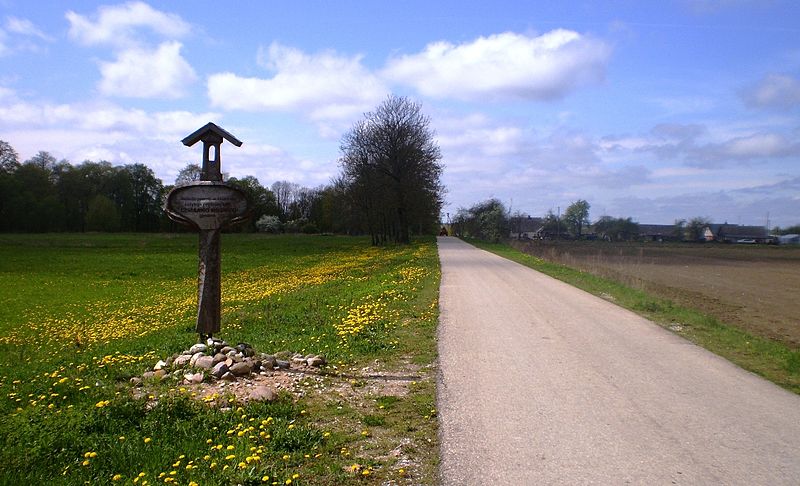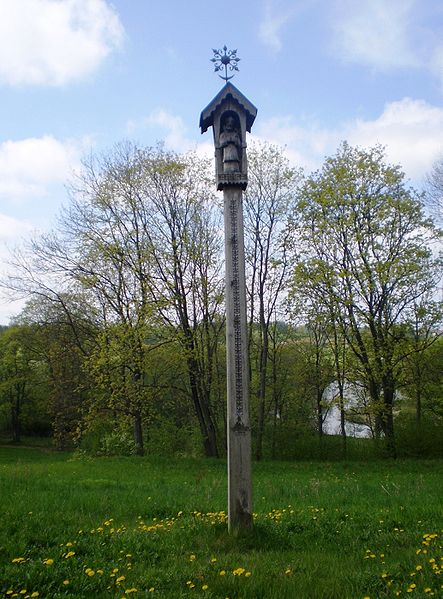The Thammasat University Library has acquired a new book that should be useful for students interested in European history, Slavic studies, literature, philosophy, political science, international relations, religious studies, and related subjects.
Czesław Miłosz: a California Life is about a Polish Nobel Prize-winning poet, who spent many years teaching at the University of California at Berkeley.
The TU Library collection includes several books by and about Miłosz.
Miłosz was born in the village of Šeteniai, now Kėdainiai district in Kaunas County, Lithuania.
He wrote about Stalinism in an influential way in his book-length essay, The Captive Mind, which is available to TU students through the TU Library Interlibrary Loan (ILL) service.
In his writing, Miłosz often addressed questions of morality, politics, history, and religion.
Here are some examples of his poems that have been posted online on different websites:
===============================
- Love
Love means to learn to look at yourself
The way one looks at distant things
For you are only one thing among many.
And whoever sees that way heals his heart,
Without knowing it, from various ills—
A bird and a tree say to him: Friend.
Then he wants to use himself and things
So that they stand in the glow of ripeness.
It doesn’t matter whether he knows what he serves:
Who serves best doesn’t always understand.
==================================
- Late Ripeness
Not soon, as late as the approach of my ninetieth year,
I felt a door opening in me and I entered
the clarity of early morning.
One after another my former lives were departing,
like ships, together with their sorrow.
And the countries, cities, gardens, the bays of seas
assigned to my brush came closer,
ready now to be described better than they were before.
I was not separated from people,
grief and pity joined us.
We forget – I kept saying – that we are all children of the King.
For where we come from there is no division
into Yes and No, into is, was, and will be.
We were miserable, we used no more than a hundredth part
of the gift we received for our long journey.
Moments from yesterday and from centuries ago –
a sword blow, the painting of eyelashes before a mirror
of polished metal, a lethal musket shot, a caravel
staving its hull against a reef – they dwell in us,
waiting for a fulfillment.
I knew, always, that I would be a worker in the vineyard,
as are all men and women living at the same time,
whether they are aware of it or not.
============================
- Hope
Hope is with you when you believe
The earth is not a dream but living flesh,
that sight, touch, and hearing do not lie,
That all thing you have ever seen here
Are like a garden looked at from a gate.
You cannot enter. But you’re sure it’s there.
Could we but look more clearly and wisely
We might discover somewhere in the garden
A strange new flower and an unnamed star.
Some people say that we should not trust our eyes,
That there is nothing, just a seeming,
There are the ones who have no hope.
They think the moment we turn away,
The world, behind our backs, ceases to exist,
As if snatched up by the hand of thieves.
=============================
- Conversation with Jeanne
Let us not talk philosophy, drop it, Jeanne.
So many words, so much paper, who can stand it.
I told you the truth about my distancing myself.
I’ve stopped worrying about my misshapen life.
It was no better and no worse than the usual human tragedies.
For over thirty years we have been waging our dispute
As we do now, on the island under the skies of the tropics.
We flee a downpour, in an instant the bright sun again,
And I grow dumb, dazzled by the emerald essence of the leaves.
We submerge in foam at the line of the surf,
We swim far, to where the horizon is a tangle of banana bush,
With little windmills of palms.
And I am under accusation: That I am not up to my oeuvre,
That I do not demand enough from myself,
As I could have learned from Karl Jaspers,
That my scorn for the opinions of this age grows slack.
I roll on a wave and look at white clouds.
You are right, Jeanne, I don’t know how to care about the salvation of my soul.
Some are called, others manage as well as they can.
I accept it, what has befallen me is just.
I don’t pretend to the dignity of a wise old age.
Untranslatable into words, I chose my home in what is now,
In things of this world, which exist and, for that reason, delight us:
Nakedness of women on the beach, coppery cones of their breasts,
Hibiscus, alamanda, a red lily, devouring
With my eyes, lips, tongue, the guava juice, the juice of la prune de Cythère,
Rum with ice and syrup, lianas-orchids
In a rain forest, where trees stand on the stilts of their roots.
Death, you say, mine and yours, closer and closer,
We suffered and this poor earth was not enough.
The purple-black earth of vegetable gardens
Will be here, either looked at or not.
The sea, as today, will breathe from its depths.
Growing small, I disappear in the immense, more and more free.
=============================
- Campo di Fiori
In Rome on the Campo di Fiori
Baskets of olives and lemons,
Cobbles spattered with wine
And the wreckage of flowers.
Vendors cover the trestles
With rose-pink fish;
Armfuls of dark grapes
Heaped on peach-down.
On this same square
They burned Giordano Bruno.
Henchmen kindled the pyre
Close-pressed by the mob.
Before the flames had died
The taverns were full again,
Baskets of olives and lemons
Again on the vendors’ shoulders.
I thought of the Campo dei Fiori
In Warsaw by the sky-carousel
One clear spring evening
To the strains of a carnival tune.
The bright melody drowned
The salvos from the ghetto wall,
And couples were flying
High in the cloudless sky.
At times wind from the burning
Would driff dark kites along
And riders on the carousel
Caught petals in midair.
That same hot wind
Blew open the skirts of the girls
And the crowds were laughing
On that beautiful Warsaw Sunday.
Someone will read as moral
That the people of Rome or Warsaw
Haggle, laugh, make love
As they pass by martyrs’ pyres.
Someone else will read
Of the passing of things human,
Of the oblivion
Born before the flames have died.
But that day I thought only
Of the loneliness of the dying,
Of how, when Giordano
Climbed to his burning
There were no words
In any human tongue
To be left for mankind,
Mankind who live on.
Already they were back at their wine
Or peddled their white starfish,
Baskets of olives and lemons
They had shouldered to the fair,
And he already distanced
As if centuries had passed
While they paused just a moment
For his flying in the fire.
Those dying here, the lonely
Forgotten by the world,
Our tongue becomes for them
The language of an ancient planet.
Until, when all is legend
And many years have passed,
On a great Campo dei Fiori
Rage will kindle at a poet’s word.
=======================================
(All images courtesy of Wikimedia Commons)



